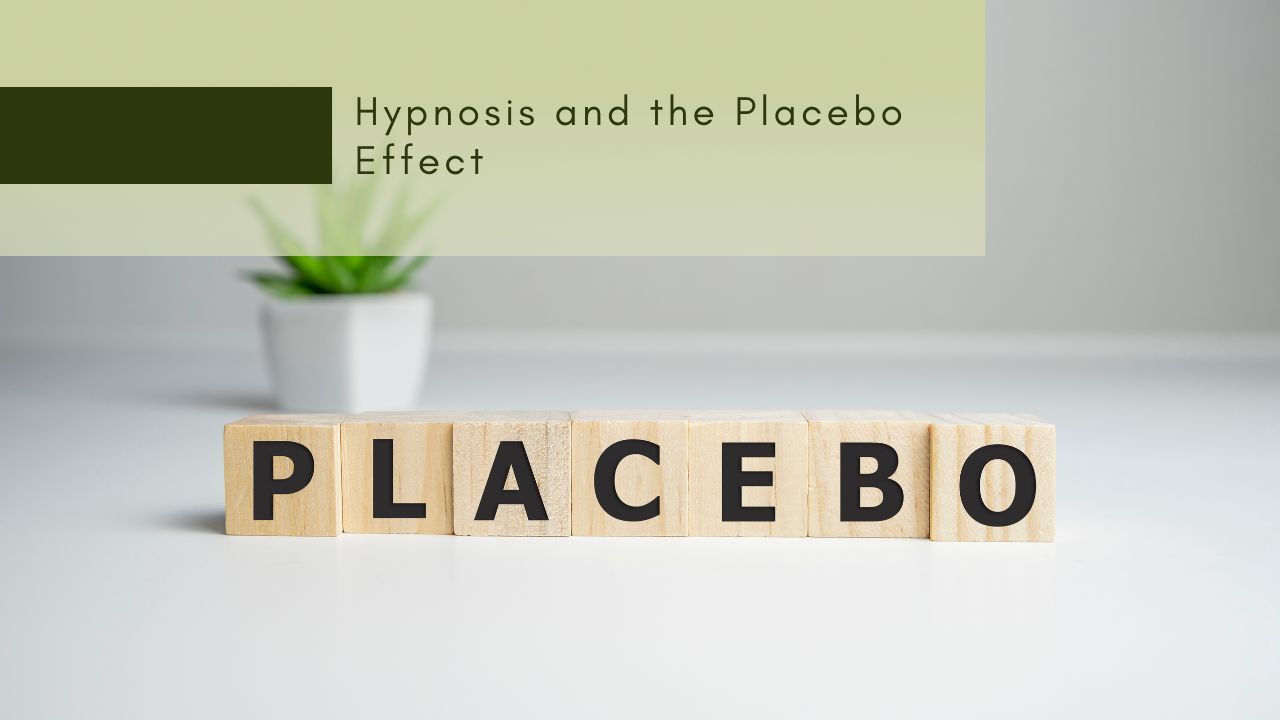As you’re about to read later on this article; “Yes, hypnotherapy can be a valuable tool in helping musicians”. In this article we will explore how hypnotherapy can help musicians in different ways.
How Do Stress and Anxiety Affect a Musician’s Performance?
Stress and anxiety can significantly impact a musician’s performance, both mentally and physically. The effects can manifest in various ways, influencing aspects such as focus, technical ability, emotional expression, and overall enjoyment of the musical experience. The following are some ways in which stress and anxiety can affect a musician’s performance:
- Impaired Concentration and Focus:
- Stress and anxiety can lead to a scattered mind, making it difficult for a musician to concentrate on the music, remember key elements, and stay focused during a performance. This can result in mistakes, missed cues, and an overall diminished quality of performance.
- Physical Tension and Technique Issues:
- Anxiety often leads to physical tension, which can affect a musician’s technique. Tense muscles can result in difficulties with instrument control, articulation, and overall fluidity in playing. This tension may also contribute to physical discomfort and fatigue during or after a performance.
- Reduced Expressiveness and Emotional Connection:
- Stress and anxiety may interfere with a musician’s ability to express themselves emotionally through their music. The heightened focus on potential mistakes or negative outcomes can overshadow the joy and passion that music is meant to convey.
- Negative Thought Patterns:
- Anxiety can lead to negative self-talk and self-doubt. Musicians may experience thoughts such as “I’m going to mess up,” or “I’m not good enough.” These thoughts can create a self-fulfilling prophecy, impacting confidence and performance.
- Performance Anxiety (Stage Fright):
- Performance anxiety, commonly known as stage fright, is a specific form of anxiety related to performing in front of an audience. It can lead to symptoms such as nervousness, sweating, trembling, and an increased heart rate. Severe cases may even cause panic attacks.
- Memory Issues:
- Stress and anxiety can interfere with memory recall, making it challenging for musicians to remember musical passages, lyrics, or cues. This can contribute to a sense of insecurity and a fear of forgetting crucial elements during a performance.
- Diminished Enjoyment and Satisfaction:
- Stress and anxiety can take away the joy and satisfaction of making music. Instead of experiencing the pleasure of the creative process and performance, musicians may find themselves preoccupied with worries and negative emotions.
- Interference with Ensemble Dynamics:
- For musicians who perform in ensembles or orchestras, individual stress and anxiety can affect the overall cohesion of the group. Poor communication, lack of synchronization, and disrupted ensemble dynamics may result from individual members’ stress levels.
Can Hypnotherapy Help Musicians Overcome Performance Anxiety?
Yes, hypnotherapy can be a valuable tool in helping musicians overcome performance anxiety. Performance anxiety, also known as stage fright, is a common challenge for many musicians, and it can significantly impact their ability to perform at their best. Hypnotherapy addresses the psychological and emotional aspects of performance anxiety, offering a holistic approach to managing and reducing the symptoms.
To address the impact of stress and anxiety on a musician’s performance, various strategies can be employed, including:
- Pre-performance rituals and relaxation techniques: Incorporating calming practices before a performance.
- Mindfulness and mental rehearsal: Techniques that help musicians stay present and focused during performances.
- Cognitive-behavioral strategies: Addressing negative thought patterns and self-talk through therapeutic interventions.
- Performance coaching: Working with a coach to develop mental resilience and coping strategies.
- Regular practice and preparation: Building confidence through thorough preparation and practice.
What Role Does Hypnotherapy Play in Enhancing a Musician’s Creativity?
Hypnotherapy can play a role in enhancing a musician’s creativity by tapping into the subconscious mind, facilitating a relaxed and open state, and addressing potential mental blocks. Below are several ways in which hypnotherapy may contribute to enhancing creativity in musicians:
- Accessing the Subconscious Mind:
- Hypnotherapy aims to access the subconscious mind, where creative ideas, insights, and associations often reside. By bypassing the conscious mind, which may be influenced by self-doubt or limiting beliefs, musicians can explore and unlock creative potential.
- Overcoming Creative Blocks:
- Musicians may encounter creative blocks or mental barriers that hinder the flow of ideas. Hypnotherapy can help identify and address these blocks by uncovering the root causes, whether they are related to past experiences, fears, or negative self-perceptions.
- Enhancing Relaxation and Focus:
- Hypnotherapy sessions often involve relaxation techniques that create a focused and receptive mental state. This relaxed state can be conducive to creative thinking, allowing musicians to explore new ideas, experiment with different concepts, and envision unique musical expressions.
- Stimulating Imagination and Visualization:
- Hypnotherapy can stimulate the imagination and enhance the power of visualization. Musicians may be guided through vivid mental imagery, helping them envision new compositions, explore innovative arrangements, and visualize the emotional impact of their music.
- Fostering Positive Mindset and Confidence:
- Confidence is a key factor in creative expression. Hypnotherapy can contribute to building confidence by addressing self-limiting beliefs and fostering a positive mindset. This, in turn, enables musicians to take creative risks and embrace experimentation.
- Exploring Symbolism and Metaphors:
- Hypnotherapy may involve exploring symbolic or metaphorical representations that can stimulate creativity. Metaphors and symbols can be powerful tools for accessing deeper layers of the mind and expressing complex emotions through music.
- Enhancing Intuition and Musical Instinct:
- Intuition plays a significant role in creative processes. Hypnotherapy can help musicians tap into their intuitive abilities and trust their musical instincts. This can lead to more spontaneous and authentic creative expression.
- Encouraging Flow States:
- Hypnotherapy sessions can encourage the experience of “flow states,” where musicians become fully immersed in the creative process. Flow states are characterized by heightened focus, time distortion, and a sense of effortless creativity.
- Inspiring Goal-Setting and Visioning:
- Hypnotherapy can assist musicians in setting creative goals and envisioning the outcomes they desire. By aligning the subconscious mind with creative aspirations, individuals may feel more motivated to pursue and achieve their creative objectives.
- Stress Reduction for Creative Freedom:
- Stress and anxiety can impede creative thinking. Hypnotherapy’s stress reduction techniques can create a mental environment that allows for greater creative freedom, enabling musicians to explore ideas without the interference of negative emotions.
How Can Musicians Incorporate Hypnotherapy Into Their Practice Routine?
Incorporating hypnotherapy into a musician’s practice routine involves integrating specific techniques and sessions to address performance-related challenges. Below are some ways musicians can include hypnotherapy in their practice routine:
- Set Clear Goals:
- Define specific goals for incorporating hypnotherapy into your practice routine. Whether it’s reducing performance anxiety, improving focus, or building confidence, having clear objectives will help guide the hypnotherapy sessions.
- Pre-performance Relaxation Sessions:
- Schedule hypnotherapy sessions focused on relaxation and stress reduction before important performances. These sessions can help you enter a state of calmness and focus, contributing to a more composed and confident performance.
- Visualization and Mental Rehearsal:
- Integrate visualization and mental rehearsal techniques into your practice routine. Spend dedicated time mentally rehearsing successful performances, envisioning yourself playing with confidence, precision, and expression.
- Create Personalized Anchors:
- Work with your hypnotherapist to develop personalized anchors or cues that help you access a desired mental state. These anchors can be incorporated into your practice routine, serving as reminders to stay focused, calm, and in control.
- Address Specific Challenges:
- Use hypnotherapy to address specific challenges you may encounter during performances, such as memory lapses, technical difficulties, or self-doubt. Sessions can be customized to target the unique aspects of your musical practice.
- Regular Mindfulness Practices:
- Practice mindfulness techniques regularly, even outside of formal hypnotherapy sessions. Mindfulness can help you stay present, reduce anxiety, and enhance overall mental clarity during practice and performances.
- Post-performance Reflection and Integration:
- After performances, use hypnotherapy for reflection and integration. Sessions can help you process the experience, celebrate successes, and address any challenges or negative thoughts that may have arisen during the performance.
- Consistent Practice Schedule:
- Maintain a consistent practice schedule that includes both traditional practice methods and hypnotherapy. Integrating hypnotherapy into your routine requires commitment and regularity to experience its benefits over time.
- Combine Hypnotherapy with Other Techniques:
- Recognize that hypnotherapy is just one tool in your toolkit. Combine it with other performance-enhancing techniques, such as goal-setting, regular practice, performance coaching, and physical conditioning.
- Build a Supportive Environment:
- Cultivate a supportive environment for your practice and performances. This includes surrounding yourself with positive influences, seeking constructive feedback, and fostering a mindset of continuous improvement.
It is important to remember that individual experiences with hypnotherapy may vary, and it’s important to approach it with an open mind and commitment to the process. Communication with your hypnotherapist is crucial to ensure that the sessions align with your musical goals and personal preferences. Additionally, integrating hypnotherapy into your practice routine is most effective when part of a holistic approach to performance enhancement.
Are There Successful Cases of Musicians Enhancing Their Performance With Hypnotherapy?
While individual experiences with hypnotherapy can vary, there are numerous successful cases where musicians have reported improvements in their performance. The following are a few examples of successful cases:
- The London Symphony Orchestra:
- The London Symphony Orchestra has reportedly explored the use of hypnotherapy to help musicians manage performance anxiety and stress. Some members of the orchestra have shared positive experiences, noting improved focus, reduced anxiety, and enhanced overall well-being.
- Yuja Wang – Pianist:
- Renowned pianist Yuja Wang has spoken about incorporating hypnotherapy into her preparation for performances. She mentioned using hypnotherapy to help manage nerves and anxiety, contributing to a more relaxed and focused mindset during concerts.
- Sarah Chang – Violinist:
- Violinist Sarah Chang has publicly discussed her use of hypnotherapy to address performance anxiety. She credits hypnotherapy with helping her manage nerves and achieve a more confident and centered state before and during performances.
- Christopher Bowen – Flutist:
- Christopher Bowen, a professional flutist, has shared his positive experience with hypnotherapy for performance anxiety. He noted improvements in his ability to manage stress, maintain focus, and achieve a more relaxed and enjoyable performance experience.
- John McLaughlin – Guitarist:
- Jazz guitarist John McLaughlin has discussed using hypnotherapy as a tool for relaxation and focus. He emphasized the positive impact it had on his ability to connect with the music and the audience during performances.
These examples highlight that musicians from various genres and backgrounds have explored hypnotherapy to enhance their mental and emotional states during performances. Success stories often involve a combination of hypnotherapy with other performance-enhancing practices, such as regular practice, mental rehearsal, and mindfulness.




